This page is based on this
Wikipedia article Text is available under the
CC BY-SA 4.0 license; additional terms may apply.
Images, videos and audio are available under their respective licenses.

The Cosby Show is an American television sitcom co-created and starring Bill Cosby, which aired for eight seasons on NBC from September 20, 1984, until April 30, 1992. The show focuses on the Huxtable family, an upper middle-class African-American family living in Brooklyn, New York.

Fat Albert and the Cosby Kids is an American animated television series created, produced, and hosted by comedian Bill Cosby, who also lent his voice to a number of characters, including Fat Albert himself. Filmation was the production company for the series. The show premiered in 1972 and ran until 1985. The show, based on Cosby's remembrances of his childhood gang, centered on Fat Albert, and his friends.

Wonderfulness (1966) is the fourth album of stand-up comedy performances by Bill Cosby. The title comes from a catchphrase used in Cosby's television series, I Spy.
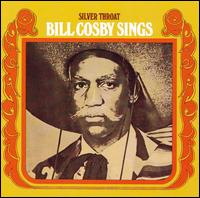
Silver Throat: Bill Cosby Sings (1967) is the sixth album by Bill Cosby.
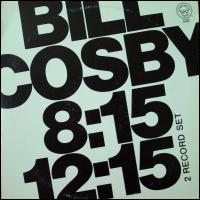
8:15 12:15 is the eighth comedy album by Bill Cosby. It was his first double-disc album. It was also his first record not released strictly by Warner Bros. Records label but by Tetragrammaton Records instead.
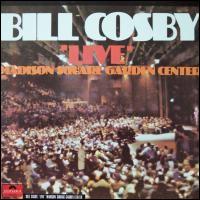
Live: Madison Square Garden Center (1970) is the 11th comedy album by Bill Cosby.

Bill Cosby Talks to Kids About Drugs (1971) is an album by Bill Cosby. Unlike most of his recordings, this is not a full-fledged comedy album, but rather a record intended for children to school them on the dangers of drugs through songs and dialogue. It won the Grammy Award in 1972 for Best Recording for Children.
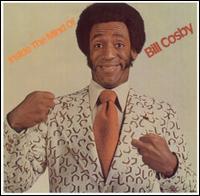
Inside the Mind of Bill Cosby (1972) is the 14th album of stand up comedy by Bill Cosby. Recorded at the Circle Star Theater, it is the fifteenth such album he released, but only the fourth on Uni Records. The album is available on compact disc, but to date the other Uni albums have not been so released.
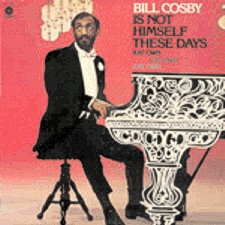
Bill Cosby Is Not Himself These Days (1976) is a musical comedy album by Bill Cosby.

Disco Bill (1977) is an album by Bill Cosby. It is his fifth, and last, musical comedy/parody album. As with Bill Cosby Is Not Himself These Days, Cosby stated he improvised much of the material on the album; as its name implies, the album spoofs the disco craze of the late 1970s.

The New Bill Cosby Show is an American variety television series aired in the United States by CBS as part of its 1972–73 lineup.

My Father Confused Me... What Must I Do? What Must I Do? is the 16th comedy album by Bill Cosby, originally released on vinyl in 1977. It was re-released on CD as the first disc of The Bill Cosby Collection, the second disc being Cosby's follow up comedy record, 1978's Bill's Best Friend. Much of the material was recycled in the 1983 performance film Bill Cosby: Himself.

Bill's Best Friend is the 17th comedy album by Bill Cosby. Much of the material was recycled in the film and accompanying album Himself. The story of the car with the airplane engine was previously attributed to Fat Albert, while on this album the owner is referred to as "Charlie Waynes". The car in the Fat Albert sketch was a 1941 Mercury. The car on this album is a 1942 DeSoto. This album and his previous Capitol Records album were repackaged in Australia as a two-CD set in 1992 called The Bill Cosby Collection.
"Little Ole Man " is a 1967 single recorded and released by comedian Bill Cosby, released as a single from the entertainer's first musical comedy album, Silver Throat: Bill Cosby Sings.
"Yes, Yes, Yes" is a musical comedy/parody song co written, recorded and released as a single in 1976, by comedian Bill Cosby. The song came from Cosby's album from 1976, Bill Cosby Is Not Himself These Days.

Hannibal Amir Buress is an American comedian, actor, writer, and producer. He started performing comedy in 2002 while attending Southern Illinois University. He has co-starred on Adult Swim's The Eric Andre Show since 2012 and has featured on Comedy Central's Broad City since 2014.

Bill Cosby 77 is an unreleased 2014 stand-up comedy film featuring Bill Cosby, filmed before a live audience at the San Francisco Jazz Center in California. Cosby chose the venue in honor of his friend Enrico Banducci and his establishment the hungry i. The comedian said his wife Camille Cosby helped with the editing process of the film.

















